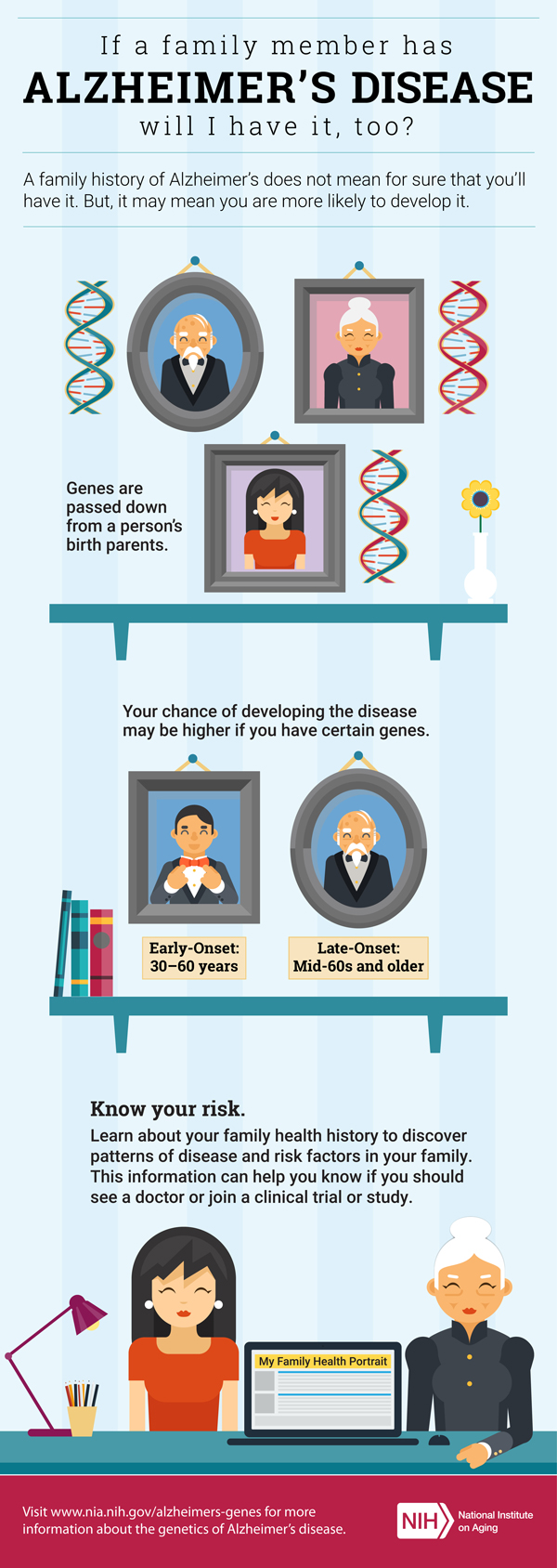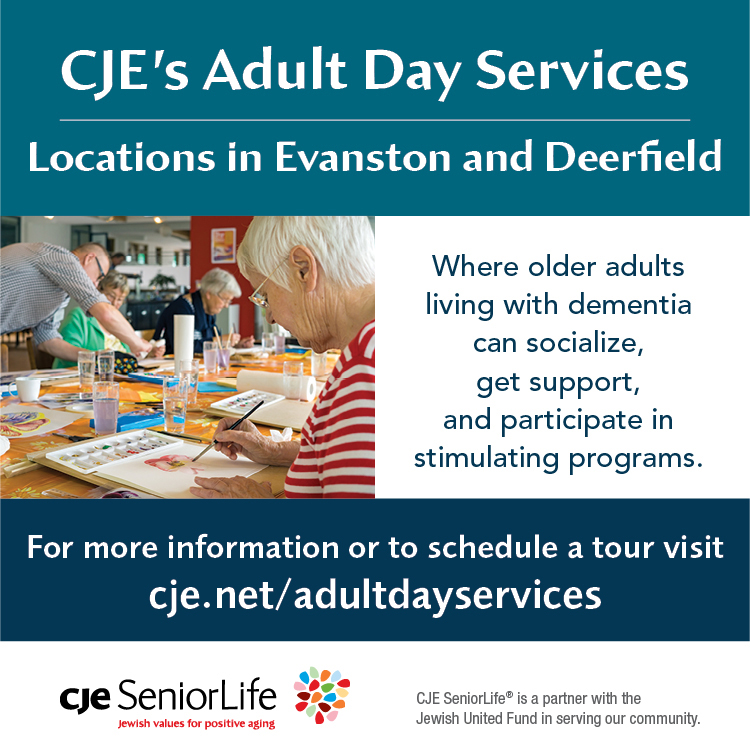
Nancy, who studied and worked in France for 10 years, writes about health, cultural events, food and the healing power of the arts.
When Ann learned about a test that could reveal whether she had a genetic risk factor for Alzheimer’s disease, the 72-year-old Des Plaines resident decided to take it. Her father and maternal grandmother both had the disease.
The test that Ann — who requested that her last name not be used for privacy — took determines if a person has a variation in the APOE gene, which encodes a protein that helps carry cholesterol and other types of fat in the blood.
Having the APOE4 variation does not guarantee that a person will develop Alzheimer’s disease, says Chad Yucus, MD, a neurologist at NorthShore University HealthSystem. Instead, the variant increases the likelihood that the disease will develop.
All people who have the gene variation do not develop Alzheimer’s, and all people who develop Alzheimer’s do not have the APOE4 variation.
When the results of Ann’s blood test at NorthShore University HealthSystem came back positive, Ann says, “I had some initial fear, but I didn’t panic because I was just gathering information.”
Making sense of results
One in five women and one in 10 men will get Alzheimer’s in their lifetime. If a man has one copy of the APOE4 variant from one parent, his risk of developing the disease increases slightly. For women, the risk increases slightly more. If a man has two copies of APOE4, one from each parent, his lifetime risk goes up further, as it does for women. Yucus says that research has not yet determined why the percentages differ between men and women.
Health insurance generally doesn’t cover the genetic test, which costs $80 to $85 at NorthShore. It is for people with mild cognitive impairment or those who have a family history of Alzheimer’s. Yet, not all physicians encourage people to pursue the test.
Carolyn Jones, MD, director of clinical genetics and cytogenetics at Rush University Medical Center, focuses on the genetics of Alzheimer’s disease and the ethics of genetic testing. She says she meets with adults who have already received results that indicate the presence of APOE4, but she doesn’t recommend that her patients test for the risk factor.
She points out that people with APOE4 are at a slightly increased risk of developing Alzheimer’s compared to the general population if they have a family history of the illness. But even if people are armed with that knowledge, there’s not much they can do with that information.
“If tomorrow a new medication came out to prevent Alzheimer’s, I would recommend the test right away,” she says. “But we’re two steps away from that, because we don’t know what causes it, so we don’t know how to treat it.”
Some direct-to-consumer genetic testing companies, such as 23andMe, offer a genetic test for APOE4, approved by the Food and Drug Administration. But Jones says these at-home tests are not held to the higher standards of clinical labs, and the results need to be confirmed in a medical setting. Plus, individuals should consult with a genetic counselor to understand the results of the test.
Managing health and lifestyle choices
People considering having the test for the genetic risk factor for Alzheimer’s should begin by consulting a neurologist, who can provide the necessary information about the test and about their risk for Alzheimer’s disease. Jones also encourages people to meet with a genetic counselor, who is trained in psychology and can help people understand the emotional impact and other ramifications of testing so they can decide if it’s the right decision for them.
“Some individuals are knowledge seekers. They just need to understand the possible consequences of the knowledge they are seeking,” Jones says.
While you can’t control your genes, you can control some Alzheimer’s risk factors, such as managing underlying health conditions and making healthy lifestyle choices to improve the health of your brain.
“These are equally or more important than the genetic risk factor,” Yucus says. Risk factors include cardiovascular disease, hypertension, high cholesterol, diabetes, and sleep disorders. Lifestyle changes such as losing weight, exercising, eating a Mediterranean diet, and quitting smoking can help reduce other risks.
Ann says that after her test came back positive for the gene variant, she sought ways to minimize her risk of developing Alzheimer’s disease. She eats a healthy diet and avoids drinking alcohol. For exercise, she enjoys nightclub and ballroom dancing five times a week. She also plays bridge, which keeps her cognitive functions sharp and gives her an opportunity to socialize.
“I believe in preventive medicine,” Ann says. “I follow the guidelines, and I feel like I have a sense of control over my own health. It gives me hope.”









